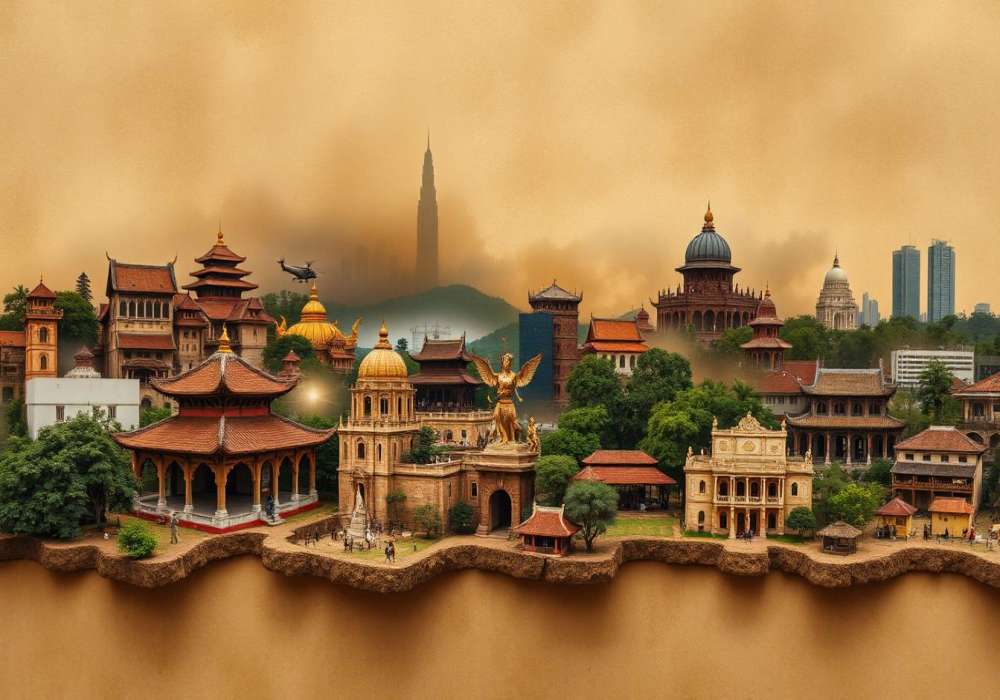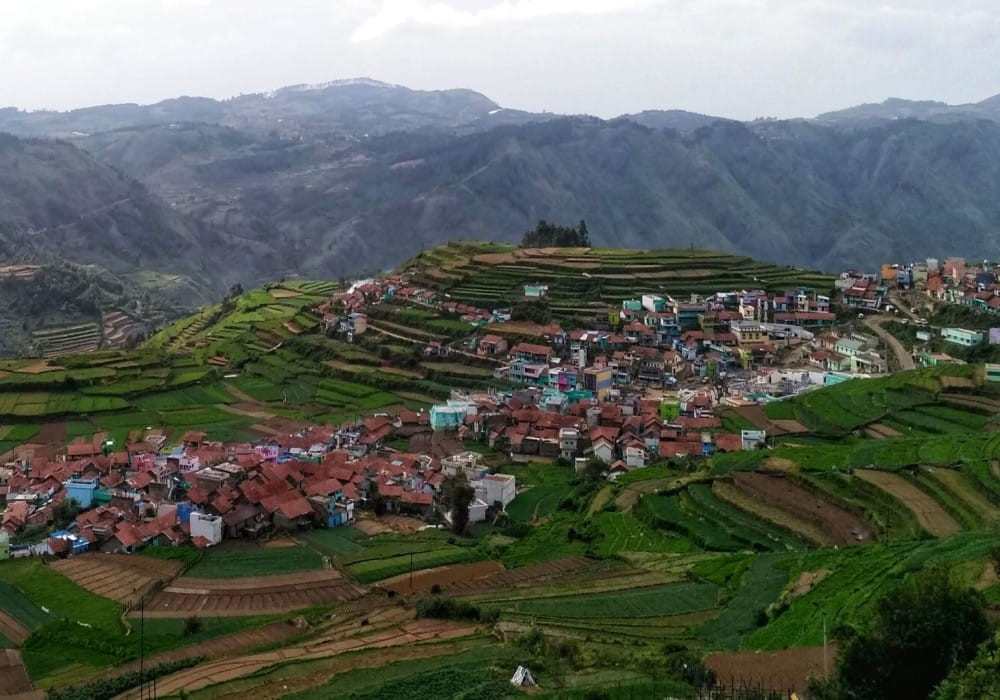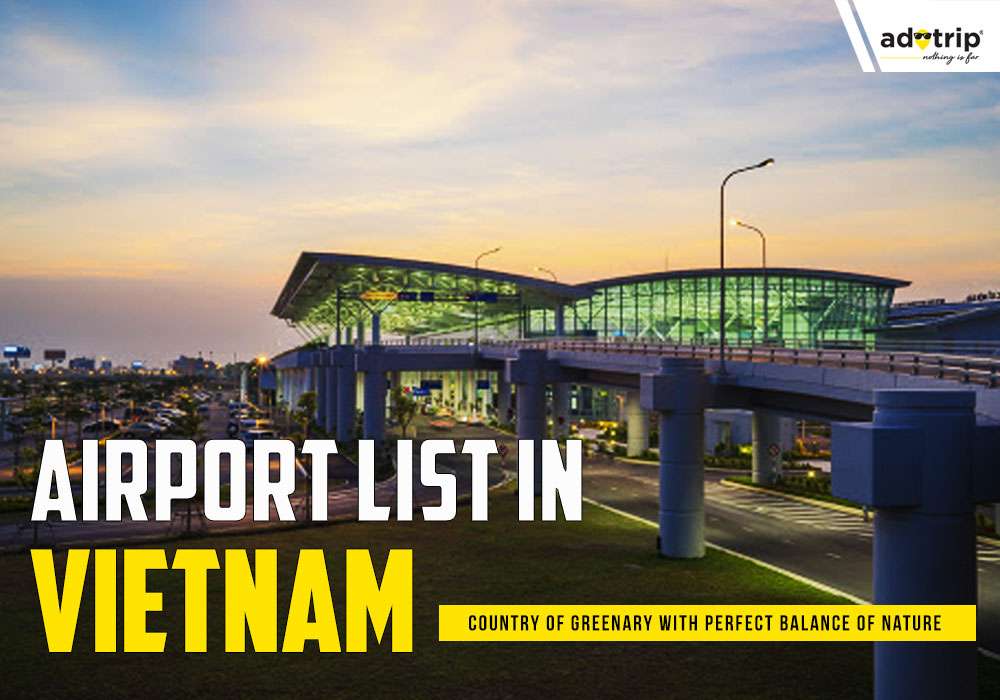
Last Updated At: 07-Aug-2025
Major Highlights of the History of Vietnam
The history of Vietnam is a rich and complex tapestry that spans thousands of years, marked by a series of dynasties, foreign invasions, and profound social and political changes. Situated in Southeast Asia, Vietnam is known for its stunning landscapes, diverse culture, and a history that has shaped the nation into what it is today.
History of Vietnam is an epic tale of resilience, transformation, and enduring cultural richness. Spanning thousands of years, this Southeast Asian nation has navigated ancient dynasties, Chinese domination, colonial rule, and a tumultuous 20th century marked by the Vietnam War. From the legendary origins of the Hong Bang Dynasty to the modern-day Socialist Republic, Vietnam's history is etched with stories of warrior kings, profound philosophical influence, and a spirit of indomitable independence. Its Heritage is a vibrant tapestry of traditions reflected in its cuisine, architecture, and festivals. Explore the journey of a nation that has risen from the ashes to become a thriving and dynamic part of Southeast Asia.
Keep scrolling to learn more!
Major Highlights of the History of Vietnam
The history of Vietnam is a long and complex narrative spanning thousands of years. Here is a chronological list of key events and periods in the history of Vietnam:
- Ancient Vietnamese Dynasties | Marked by Territorial Expansion and Confucian Influence
- Vietnamese War Timeline | Complex and Contentious Conflict
- Vietnamese Independence Movement | Relentless Struggle Against Foreign Domination
- French Colonial Vietnam | Sense of Vietnamese Nationalism
- Ho Chi Minh Biography | Struggle for Independence From French Colonial Rule
- Vietnam War Veterans | Veterans Are Respected for Their Service
- Cultural Heritage Vietnam | Rich Cultural Heritage
- Ancient Origin of Vietnam | Traced Back to the Hong Bang Dynasty
- Tourism and Heritage of Vietnam | Renowned for Its Diverse Tourism Offerings
- Environmental Conservation in Vietnam | Promoting Conservation Awareness and Sustainable Practices
1. Ancient Vietnamese Dynasties | Marked by Territorial Expansion and Confucian Influence
Ancient Vietnamese dynasties, including the Hong Bang, Dinh, Ly, Tran, and Le, marked crucial epochs in Vietnam's history. The Hong Bang Dynasty, legendary and mythical, was followed by the Dinh Dynasty, ushering in independence from Chinese rule. The Ly Dynasty promoted Confucianism and Buddhism, fostering cultural growth, while the Tran Dynasty successfully repelled Mongol invasions. The Le Dynasty, marked by territorial expansion and Confucian influence, led to reunification under Le Loi. These dynasties helped shape Vietnam's cultural Heritage, resistance to foreign dominance, and historical legacy, ultimately influencing the nation's identity as a resilient and culturally rich Southeast Asian nation.
2. Vietnamese War Timeline | Complex and Contentious Conflict
The Vietnam War, from the mid-1950s to 1975, was a complex and contentious conflict. It began with the First Indochina War against French colonial rule (1946-1954), culminating in the Geneva Accords and temporary division of Vietnam. The Second Indochina War, commonly known as the Vietnam War, ignited in 1955, with the communist North Vietnam, supported by the Soviet Union and China, pitted against the anti-communist South Vietnam. The war ended in 1975 with Saigon's fall, leading to Vietnam's reunification under communist control. It profoundly impacted both Vietnam and the world, with far-reaching consequences.
3. Vietnamese Independence Movement | Relentless Struggle Against Foreign Domination
The Vietnamese independence movement was a relentless struggle against foreign domination that spanned centuries. It gained momentum in the late 19th and early 20th centuries as Vietnam faced French colonisation. Leaders like Phan Boi Chau and Ho Chi Minh emerged as prominent figures advocating for independence. The movement culminated in the August Revolution of 1945, leading to the declaration of independence and the establishment of the Democratic Republic of Vietnam. This sparked the First Indochina War against French colonial forces. Ultimately, the Vietnamese prevailed, and the movement achieved its goal by reunifying North and South Vietnam in 1975, marking a significant chapter in the nation's history.
Also Read : Famous Festivals Of Vietnam
4. French Colonial Vietnam | Sense of Vietnamese Nationalism
French colonial Vietnam, officially known as French Indochina, spanned from the mid-19th century to 1954. France established control through a series of treaties and military campaigns. The colonial period saw the exploitation of Vietnam's resources, the imposition of French culture, and the growth of a privileged Vietnamese elite. Resistance movements, like the Can Vuong and Cao Dai, challenged colonial rule. French colonialism contributed to a sense of Vietnamese nationalism, which culminated in the August Revolution of 1945. The First Indochina War followed, leading to the defeat of the French at Dien Bien Phu and the 1954 Geneva Accords, which temporarily divided Vietnam into North and South.
5. Ho Chi Minh Biography | Struggle for Independence From French Colonial Rule
Ho Chi Minh, born Nguyen Sinh Cung (1890-1969), was a key figure in Vietnamese history. He was a Marxist revolutionary who led Vietnam's struggle for independence from French colonial rule and, later, against American intervention in the Vietnam War. Ho Chi Minh served as the President of North Vietnam from 1954 until he died in 1969. His leadership and determination earned him the nickname "Uncle Ho" among the Vietnamese people. He played a crucial role in unifying North and South Vietnam under communist rule in 1975, leaving a lasting legacy as a national hero and the founding father of modern Vietnam.
6. Vietnam War Veterans | Veterans Are Respected for Their Service
Vietnam War veterans served in the armed forces during the Vietnam War, which lasted from 1955 to 1975. They faced the challenges of a controversial and gruelling conflict, enduring combat, harsh conditions, and often returning to a divided and conflicted homefront. Many Vietnam veterans experienced physical and emotional scars, including post-traumatic stress disorder (PTSD). Over time, recognition and support for these veterans have grown, with monuments like the Vietnam Veterans Memorial in Washington, D.C., honouring their sacrifices. Today, Vietnam War veterans are respected for their service and contributions to the nation.
7. Cultural Heritage Vietnam | Rich Cultural Heritage
Vietnam boasts a rich cultural heritage shaped by thousands of years of history. Its Heritage encompasses diverse elements, including traditional music, dance, cuisine, and art, heavily influenced by Confucianism, Buddhism, and indigenous beliefs. The country is famous for its UNESCO World Heritage Sites like Ha Long Bay, My Son Sanctuary, and Hoi An Ancient Town, showcasing historical, architectural, and natural treasures. Vietnamese traditions and customs thrive in modern society, celebrating the nation's vibrant past and unique identity and attracting visitors worldwide to experience its cultural richness.
8. Ancient Origin of Vietnam | Traced Back to the Hong Bang Dynasty
The ancient origin of Vietnam is shrouded in myth and legend, as historical records from this period are limited. However, according to Vietnamese legend, the country's origins are traced back to the Hong Bang Dynasty, which is believed to be the first ruling dynasty in Vietnamese history.
Also Read : Tourist Places In Vietnam
9. Tourism and Heritage of Vietnam | Renowned for Its Diverse Tourism Offerings
Vietnam is a captivating destination renowned for its diverse tourism offerings and rich cultural Heritage. Its lush landscapes range from the limestone karsts of Halong Bay to the terraced rice fields of Sapa. The country boasts a wealth of UNESCO World Heritage Sites, such as the ancient town of Hoi An, My Son Sanctuary, and the Imperial City of Hue, reflecting its historical significance. With its pho and spring rolls, Vietnamese cuisine is a culinary delight. Visitors can explore bustling markets, tranquil temples, and vibrant street life while immersing in a blend of Confucianism, Buddhism, and indigenous traditions, making Vietnam a cultural and scenic marvel.
Also Read : Famous Food Of Vietnam
10. Environmental Conservation in Vietnam | Promoting Conservation Awareness and Sustainable Practices
Environmental conservation in Vietnam is a critical concern due to rapid industrialisation and population growth. Efforts are underway to address environmental challenges, including deforestation, water pollution, and air quality. Vietnam has established protected areas like Cat Tien National Park to safeguard biodiversity. Initiatives for sustainable agriculture, clean energy, and waste management are being promoted. The government is also committed to international agreements on climate change mitigation. NGOs and local communities are essential in promoting conservation awareness and sustainable practices
Wrap up
So, the history of Vietnam is a captivating journey through time, characterised by ancient dynasties, Chinese domination, colonial rule, and the resilience of a nation. From mythical origins to the modern Socialist Republic, Vietnam's history is a testament to the enduring spirit of its people.
To truly experience Vietnam's rich cultural Heritage and historical landmarks, plan your next adventure with Adotrip. Explore ancient temples, stroll through vibrant markets, and immerse yourself in the fascinating narratives of this Southeast Asian gem.
Don't miss the opportunity to discover the stories that have shaped Vietnam into today's vibrant nation. Visit Adotrip for curated travel experiences that will bring the history of Vietnam to life. Your next adventure awaits!
With us, nothing is far!
Frequently Asked Questions About the History of Vietnam
Q1. What are the key historical events that shaped Vietnam's history?
A1. Key Historical Events Shaping Vietnam's History:
- Ancient Dynasties: Vietnam's early history includes the Hong Bang, Ly, Tran, and Le dynasties, which laid the cultural and political foundations.
- Chinese Domination: Centuries of Chinese rule influenced Vietnamese culture and governance.
- French Colonisation: French Indochina (19th-20th century) profoundly impacted Vietnam.
- Japanese Occupation: Japan's WWII occupation led to nationalist movements.
- Vietnam War: A pivotal conflict (1955-1975) with long-lasting effects.
- Reunification: The country reunified in 1975 under communist rule.
Q2. How did French colonisation influence Vietnam's history and culture?
A2. French Colonisation's Influence:
- French rule (mid-19th to mid-20th century) introduced European culture, education, and Christianity.
- It sparked resistance and the growth of Vietnamese nationalism.
- French colonial policies exploited resources, leading to economic disparities.
Q3. What is the significance of the Vietnam War in the country's history?
A3. Significance of the Vietnam War:
- The Vietnam War (1955-1975) was a defining period, pitting North Vietnam (communist) against South Vietnam (anti-communist).
- It resulted in the reunification of Vietnam under communist rule in 1975.
- The war deeply impacted the country's politics, society, and international relations.
Q4. Are there historical landmarks and museums dedicated to Vietnam's history?
A4. Historical Landmarks and Museums:
- Vietnam boasts numerous historical landmarks and museums, including the Ho Chi Minh Mausoleum, the Imperial City of Hue, and the Cu Chi Tunnels.
- The Vietnam Museum of Ethnology and the War Remnants Museum in Ho Chi Minh City offer insights into the nation's history.
Q5. How has Vietnam's history influenced its modern society and politics?
A5. Influence on Modern Society and Politics:
- Vietnam's history shapes its modern society, emphasising resilience and unity.
- Politics are influenced by the one-party socialist system established after the Vietnam War.
- Economic reforms (Đổi Mới) have driven the country's modernisation, integrating Vietnam into the global economy.
- The memory of the Vietnam War and the struggle for independence continues to inform the nation's identity and foreign policy.
--- Published By Adotrip
Latest Blogs

Cash in the Wild: My Safari Adventure Across Kenya with Only...

One Day Picnic Spot Near Pune - Adventure, Trekking and Natu...

One Day Picnic Spots Near Mumbai - Monsoon, Adventure, Beach...

The Best Places to Go in Thailand in 2025














 Dubai
Dubai Malaysia
Malaysia USA
USA





